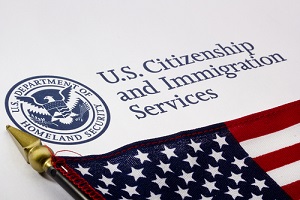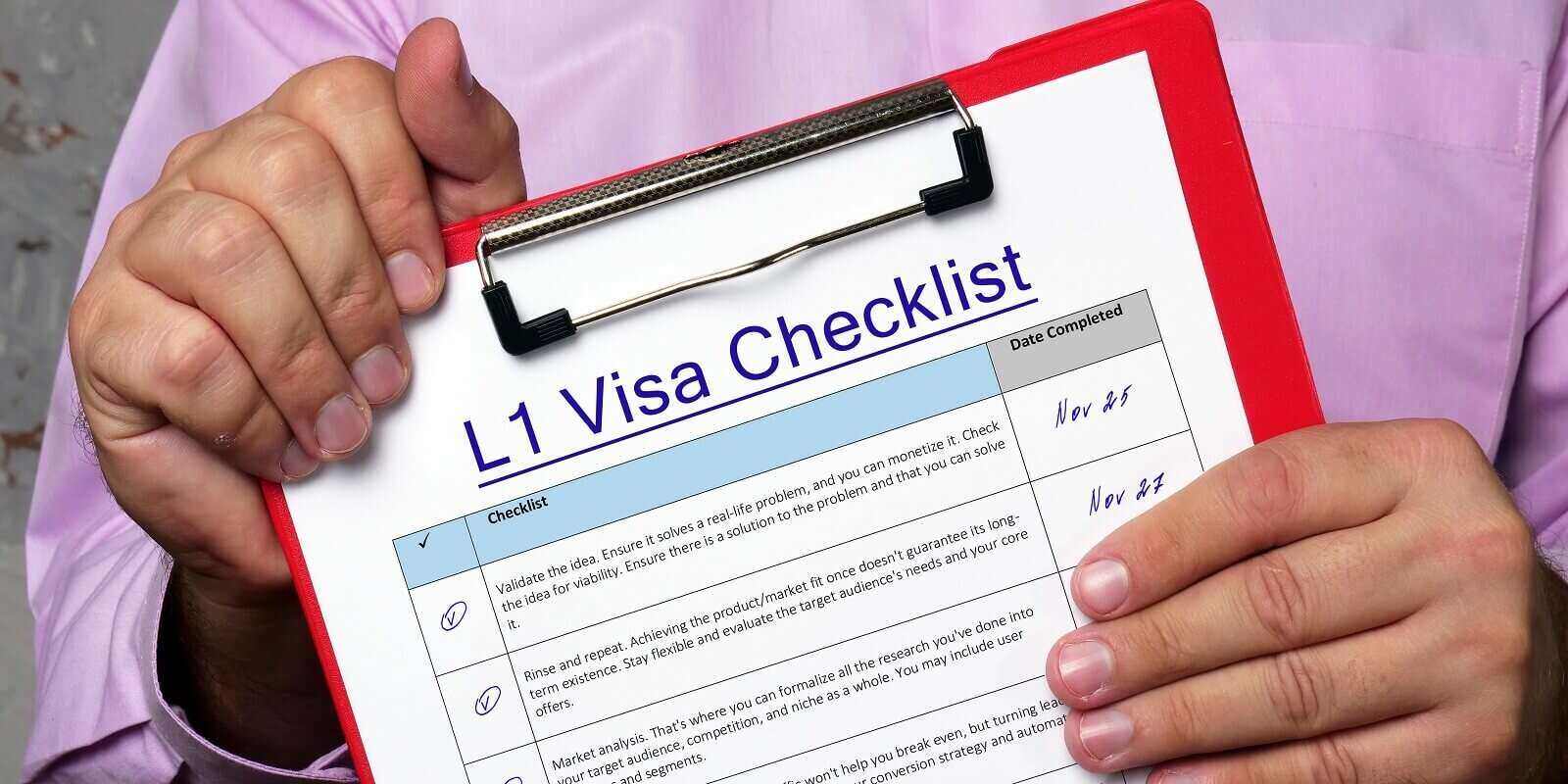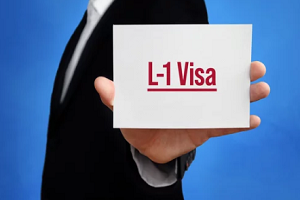The primary material that must be produced in order to support the petition for a US intra-company transfer visa is outlined in the following L1 visa document checklist.
Prerequisites for Filing for an L1 Visa
The L1 visa enables important professional personnel to establish a new associated office or relocate from an abroad office to a parent, branch, affiliate, or affiliate of the similar company in the United States. The L1A and L1B are the two variations of the L1 visa.
The L1B visa is for individuals with specialized understanding of the company’s products, services, and processes that are essential to its success, whereas the L1A visa is for workers in executive or managing roles.
In either scenario, you must have held a job for at least a year during the three years before submitting your application and be attempting to enter the US in order to start a similar or related line of employment.
The US employer must submit a petition to the US on your behalf before you may submit your application for an L1 visa. Utilizing Form I-129 and Supplemental Form I-129L, Citizenship and Immigration Services (USCIS).
L1 Visa Records of Foreign Companies
- Corporate bylaws, a business license and stock certificates
- Account audits
- Financial statements from the last three years’ worth of business income tax returns
- Business transaction records
- Marketing collateral for the company, such as a corporate brochure or a product summary
- Organizational chart, showing the total number of employees and the transferee’s position
- A thorough declaration outlining the ownership and management of the organization from an authorized person
- Company letterhead featuring name, address and company logo
US Company Documents for L1 Visa
- Certificates of Stock Articles of Incorporation
- Account audits
- Business financial statements
- Business license and promotional materials
- Corporate bylaws
- Business description and comprehensive business strategy
- Organizational chart, showing the overall number of employees and your new position
- Lease of a business premises with a detailed statement from an authorized representative outlining possession and control of the company
- Evidence of the initial investment, such as a bank statement
- Return on corporate income taxes
- Form 941, the Employer’s Quarterly Report
- Letterhead for the business containing the organization’s name, address and logo
- Company letterhead featuring name, address and company logo
Evidence confirming the opening of new premises, such as a contract for office space, sales contracts and copies of pertinent company licenses, will also be needed if you are traveling to the US to open a new office.
Please be aware that the aforementioned lists are certainly not necessarily complete, and you should always get legal guidance depending on the particulars of your company’s operations.
Blanket L Petition
Larger companies might already have received prior clearance through a Blanket L petition. As a result, numerous important employees are able to file for L1 status without having to wait for each petition’s unique USCIS approval.
Certain conditions must be satisfied in order to receive a blanket L visa. The business must:
 Have 10 L1 managers, executives or employees with specialized knowledge who were transferred to the US in the last 12 months
Have 10 L1 managers, executives or employees with specialized knowledge who were transferred to the US in the last 12 months- Have US subsidiaries and affiliations with combined annual revenues of at least $25 million
- Or have at least 1,000 employees working in the US
If your employer doesn’t match the aforementioned requirements or hasn’t received blanket clearance, an individual petition must be filed on your behalf together with copious evidence to demonstrate the following:
- That there must be shared ownership and control in order for there to be a qualified relationship among the foreign and American companies
- That you have, within the three years before filing the petition, continually worked full-time for the foreign business for at least one year
- That over the course of your one-year overseas employment, the specified business tie between the foreign and American enterprises existed
- Stating that you are looking for employment in the same or a similar role in the United States after working for the foreign company as a manager, executive or specialist in expertise
Supporting L1 Visa Employee Petition Documents
Your employer will receive a notice on form I-797 once a petition has been granted by USCIS. Then, using Form DS-160, you must complete your online visa application to the Department of State.
Additionally, you must set up an appointment for an interview with the American Embassy in your area. You must bring the following documentation with you:
 The invitation to the visa interview
The invitation to the visa interview- The DS-160 confirmation page for a visa application
- DS-160 and L supplement copies
- The receipt for the DS-160 visa application fee
- A passport that is still valid and has at least six months remaining on it
- Any previous passports you may have
- Your most recent CV or resume
- Current color portraits of your face in two pictures
- A duplicate of the I-129 petition sent to USCIS
- The USCIS I-797 approval notification
- A letter asking for an L1 visa from your company to the embassy
- Education diplomas
- Payment receipts
- Fiscal statements
- Position description
- Organizational charts that display your position within the company
- Reference letter from coworkers, superiors and others
- From the foreign company, a letter of proof of employment
- Board decisions or appointment records attesting to the transfer
- Any additional documentation demonstrating the transferee’s competence to function in an executive capacity
- If you have specific knowledge, register patents and trademarks on behalf of your company
In order to prove your candidacy for an L1 visa, you must also submit extensive supporting documents, which may include, but is not limited to, proof of your prior and intended roles in the foreign and US companies, respectively. If you don’t show up with the required paperwork, your petition for an L1 visa may be delayed or even rejected.
L1 Visa Document Mistakes to Avoid
An L1 visa is not automatically granted just because your petition was approved. The details in your application and the supporting documentation will still be used to establish your eligibility.
It goes without saying that if that information is found to be lacking, your application may be considerably delayed or perhaps rejected entirely. Before making a final decision on your visa application, there will, at the absolute least, be a request for more information when there is a lack of information.
 Furthermore, a consular official will still need to interview you even if your application and accompanying documents are satisfactory and full because of that information. You will be questioned in-depth about the business you work for and the positions you have held and will hold with the foreign and American companies, respectively.
Furthermore, a consular official will still need to interview you even if your application and accompanying documents are satisfactory and full because of that information. You will be questioned in-depth about the business you work for and the positions you have held and will hold with the foreign and American companies, respectively.
Particularly for L1B candidates, the consular officer’s questioning during the interview might be difficult; you will need to provide a convincing justification to show how your specific knowledge is essential to the overall operation and competitiveness of the organization.
By making sure that not only your paperwork is accurate, but also that you respond to any inquiries as honestly and completely as you can, you can considerably increase your chances of being given an L1 visa.
Need Support?
The applicant and their employer must collaborate to gather the necessary L1 supporting documentation in order for the L1-A and L1-B visa status to be granted. Attorneys at Pride Immigration focus exclusively on US immigration. We assist businesses and people from throughout the world with L1 visa petitions to assist in relocating important personnel to the US.
Through the first petitioning and interview procedure, as well as the ensuing extension applications, we offer the employer and employee specialized advice. Contact us if you have any questions about the L1 visa application or eligibility.
Beeraj Patel, Esq.
Latest posts by Beeraj Patel, Esq. (see all)
- Criminal History Implications for an Adjustment of Status - July 7, 2025
- Impact of Life Changes on Green Card Applications - June 16, 2025
- Common K1 Visa Criminal Background Issues - June 2, 2025

